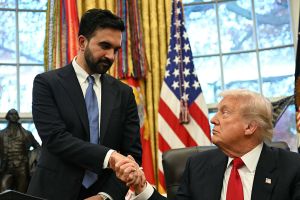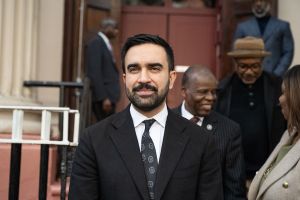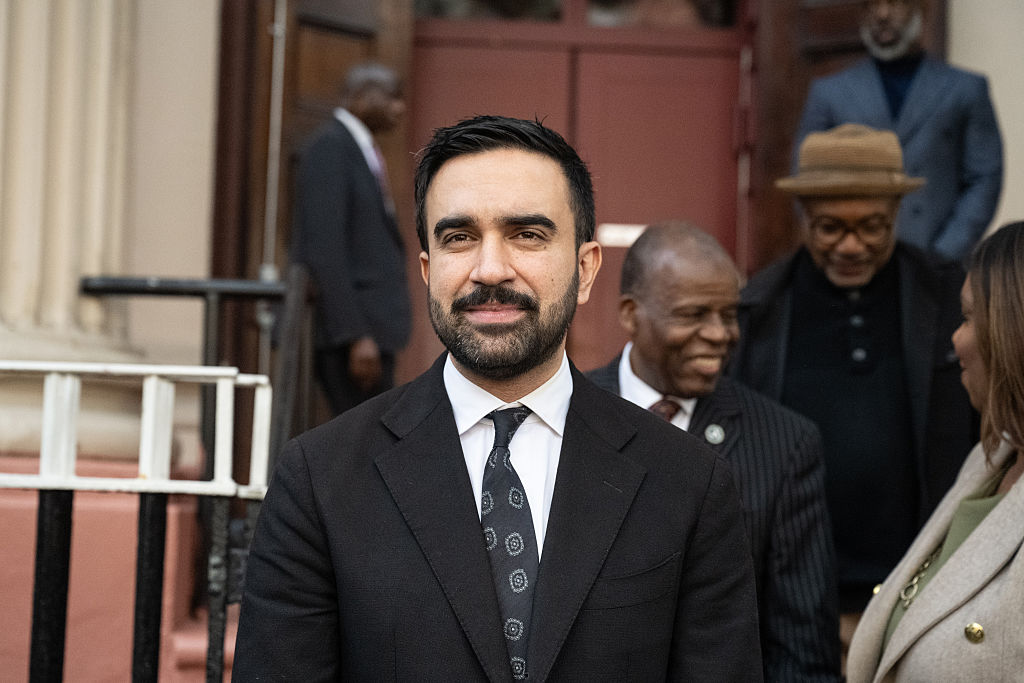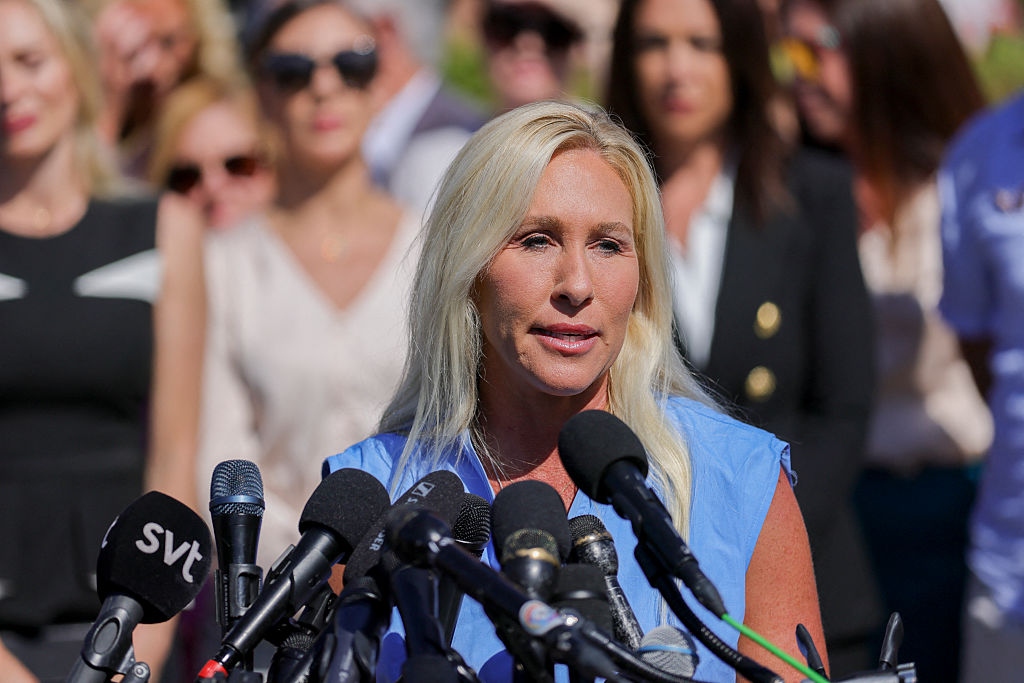The internet has transformed presidential campaigns. Barack Obama micro-targeted his way to victory in 2008. Donald Trump tweeted his way into the conversation in 2016. In 2020, Joe Biden Zoomed his way to the White House.
And yet, for all the ways in which communications technology has upended how we do politics, some things haven’t changed all that much. The race for the White House remains a made-for-TV affair: from debates to campaign stops, events are planned with the television viewer in mind. Even in the digital age, the power of television has endured. But as the country gears up for 2024, could that be about to change? News channel ratings have plummeted, households are ditching cable packages and viewers’ trust in the networks is at rock bottom. How much longer will television rule the political roost?
In this month’s cover package, Aidan McLaughlin dives into cable news’s desperate fight for survival. Read what anxious executives and disgruntled hosts tell him, and the precariousness of their position is clear. They know they are in trouble — and they’re betting everything on the election. As one insider explains to McLaughlin, “If 2024 doesn’t save cable, nothing will.” McLaughlin ultimately concludes that cable news will once again defy its doubters.
Others aren’t so sure. In a second story on this theme, Chadwick Moore talks to Tucker Carlson — arguably the most influential man on television until he was taken off air by his bosses at Fox News in the spring. He thinks the clock is ticking on the medium that made him a star. He tells Moore: “I really do think the cable news business has a limited future.”
This prediction, coming as it does from someone planning to make the leap from cable to an independent show hosted on Twitter, should be taken with a pinch of salt. But it’s hard to doubt that Carlson is right about the public’s deteriorating relationship with the networks. If cable news is in inexorable decline, our politics will change.
2024 is already shaping up to feel very different from previous, TV-news-dominated campaigns. Ron DeSantis, Donald Trump’s most hyped Republican rival, launched his candidacy in a Twitter Spaces conversation with Elon Musk. That glitchy mistake led to accusations that Team DeSantis was “too online,” but it seems apparent that the conversation is heading in that direction, as more people who grew up on the internet reach voting age.
Widen the lens a little further and things start to look very strange very quickly. The Republican primary debates — the main television events of the primary calendar — could take place without the frontrunner and online, rather than on TV. With the RNC at war with the Commission on Presidential Debates, the clash between the two parties’ candidates — for more than half a century, campaign-defining television broadcasts — might not happen at all. Meanwhile, the digital campaign will be less tightly controlled this time around; thanks in part to Musk’s Twitter purchase, Big Tech is not the political monolith it was in 2020 and the online landscape only grows more fractured. Add to this messy picture the sudden appearance of AI and its hyperrealistic deepfakes, and you have the makings of a surreal, remarkably different-feeling presidential campaign.
The decline of cable news fills some with dread: an internet-first politics, they fear, will descend into a shrieking hellscape in which an ill-informed country is siloed off into warring camps trained to hate one another. We’re not so pessimistic, not least because this is already the case: it’s exactly what viewing trends have forced cable news to do for years. The more cable news is in control, the more our news is packaged and presented by people incentivized to promote outrage and fear, not insight and clarity.
In News From Nowhere, his classic 1973 account of how TV news works, the journalist Edward Jay Epstein concluded that network news was not always the earnest attempt at objective reporting it claimed to be: “The pictures of society which are shown on television as national news are largely — though not entirely — formed and shaped by organizational considerations,” he wrote. This was something of a controversial claim at the time. Fifty years later, it is a banal truth. That machinations behind the scenes at Fox News and CNN determine their output and influence our politics is news to no one.
Looming over everything Fox News does ahead of 2024 is the legal and popular backlash against how it handled 2020. At CNN, a recent town-hall event with Donald Trump led to internal revolt; eight years after Trump became the most watched man in politics, the networks are no closer to knowing how to handle him.
Those who worry loudest about where things are headed, though, are reluctant to acknowledge that Walter Cronkite-style broadcast news is not an option. Political and technological factors make that impossible. The choice is between the kabuki of cable news entertainment and online alternatives that are less tightly controlled and potentially closer to the truth. “I really think people are on to it, don’t you?” says Tucker Carlson in his interview with The Spectator. “You can tell when someone’s lying to you or when someone’s shading the truth or trying to spin you. And there’s a lot of artifice in television.” You don’t have to subscribe to Carlson’s views to see his point.
This article was originally published in The Spectator’s July 2023 World edition.

























